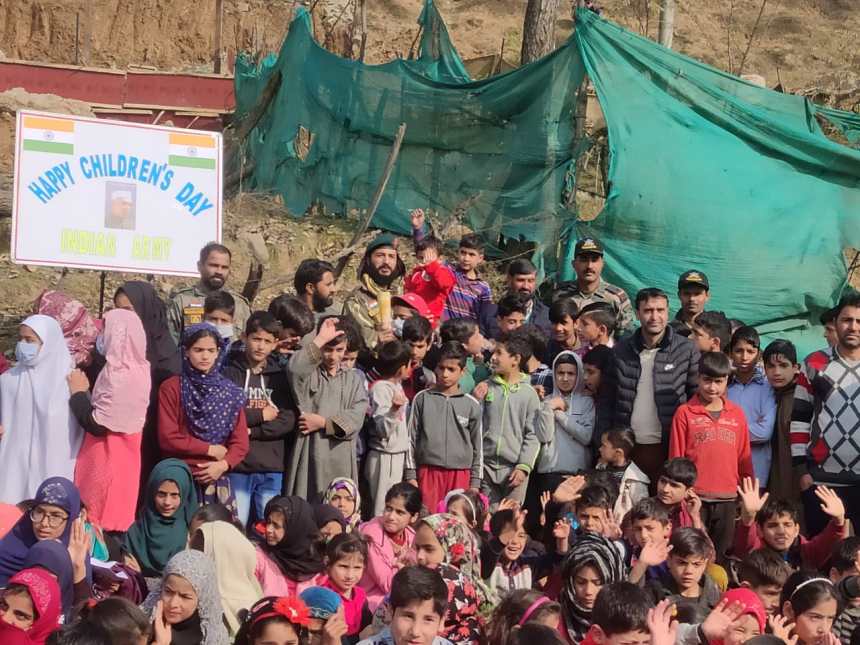In the vibrant cultural calendar of India, the 14th of November stands out as a day of jubilation and reflection – it’s Children’s Day. This annual celebration serves as a poignant reminder of the paramount importance of children’s rights, well-being, and education. A significant facet of this commemoration is the homage paid to the memory of Pandit Jawaharlal Nehru, the architect of India’s destiny and our inaugural Prime Minister, affectionately known as “Chacha Nehru” by the younger generation.
The roots of Children’s Day in India are deeply entwined with the legacy of Pandit Nehru. His unyielding advocacy for children’s education and his visionary outlook on nurturing young minds left an indelible mark on the nation. The 14th of November, his birthday, was chosen to honor him and celebrate the spirit of childhood.
Pandit Jawaharlal Nehru’s vision for the nation extended beyond political realms; it encompassed the holistic development of its future citizens. Fondly remembered as “Chacha Nehru,” he shared a unique bond with children, recognizing them as the torchbearers of India’s future. His commitment to shaping their destinies through education was unparalleled.
Nehru firmly believed that education was the key to unlocking a child’s potential and building a prosperous nation. As the chief architect of India’s educational policies, he laid the foundation for a system that aimed not only at academic excellence but also at fostering creativity, critical thinking, and a sense of responsibility.
Children’s Day, celebrated on Nehru’s birthday, is a living testament to his profound care and commitment to nurturing young minds. It goes beyond the festive air and colorful events; it’s a day to reflect on the strides made in ensuring the well-being and rights of every child in the country.
On this day, schools and educational institutions across India come alive with a myriad of activities. From cultural performances to educational workshops, the focus is on creating an environment that stimulates learning while embracing the joyous spirit of childhood. It’s a day when the spotlight shines on the unique talents and potential of every child, fostering a sense of self-worth and confidence.
Children’s Day serves as an annual checkpoint to assess the progress made in safeguarding and promoting children’s rights. It underscores the need for a collective commitment to providing a nurturing environment for every child to thrive. The significance goes beyond the festivities; it’s a call to action for policymakers, educators, and society at large to prioritize the well-being of the younger generation.
In a country as diverse as India, the challenges faced by children vary across regions and communities. Children’s Day provides an opportunity to address these challenges collectively. It serves as a platform to raise awareness about issues such as access to quality education, healthcare, and protection from exploitation. It’s a day to reflect on how far we’ve come and how much more needs to be done to ensure a brighter future for every child.
India’s strength lies in its diversity, and Children’s Day is no exception. The celebrations echo the cultural richness of the nation, with children from various backgrounds coming together to showcase their talents and celebrate their shared identity as Indians. This inclusivity is a reflection of the unity in diversity that defines India.
Efforts are made to ensure that Children’s Day celebrations are not confined to urban areas but reach every nook and corner of the country. NGOs, community organizations, and government initiatives collaborate to organize events that cater to the specific needs of different communities. The goal is to make Children’s Day a celebration that resonates with every child, regardless of their socio-economic background.
As we celebrate Children’s Day each year, it’s crucial to look ahead and envision the kind of future we want for our children. The challenges may evolve, but the commitment to providing a secure and nurturing environment for every child should remain unwavering.
Educational reforms, healthcare initiatives, and social policies must align with the evolving needs of the younger generation. The goal is not just to create future professionals but well-rounded individuals equipped with empathy, resilience, and a sense of social responsibility. Children’s Day serves as a compass guiding us in this journey of nurturing the future leaders, innovators, and change-makers.
Children’s Day in India is not just a date on the calendar; it’s a celebration of innocence, potential, and the boundless dreams that reside in every child’s heart. It’s a day to cherish the laughter that echoes in school corridors, the curiosity that sparkles in eager eyes, and the dreams that take flight in the imagination of young minds.
As we revel in the festivities and pay homage to Chacha Nehru’s vision, let’s also use this occasion to reflect on our collective responsibility towards the well-being and future of every child. Children’s Day is not just about the present generation; it’s about paving the way for a future where every child has the opportunity to flourish, contribute, and thrive.




